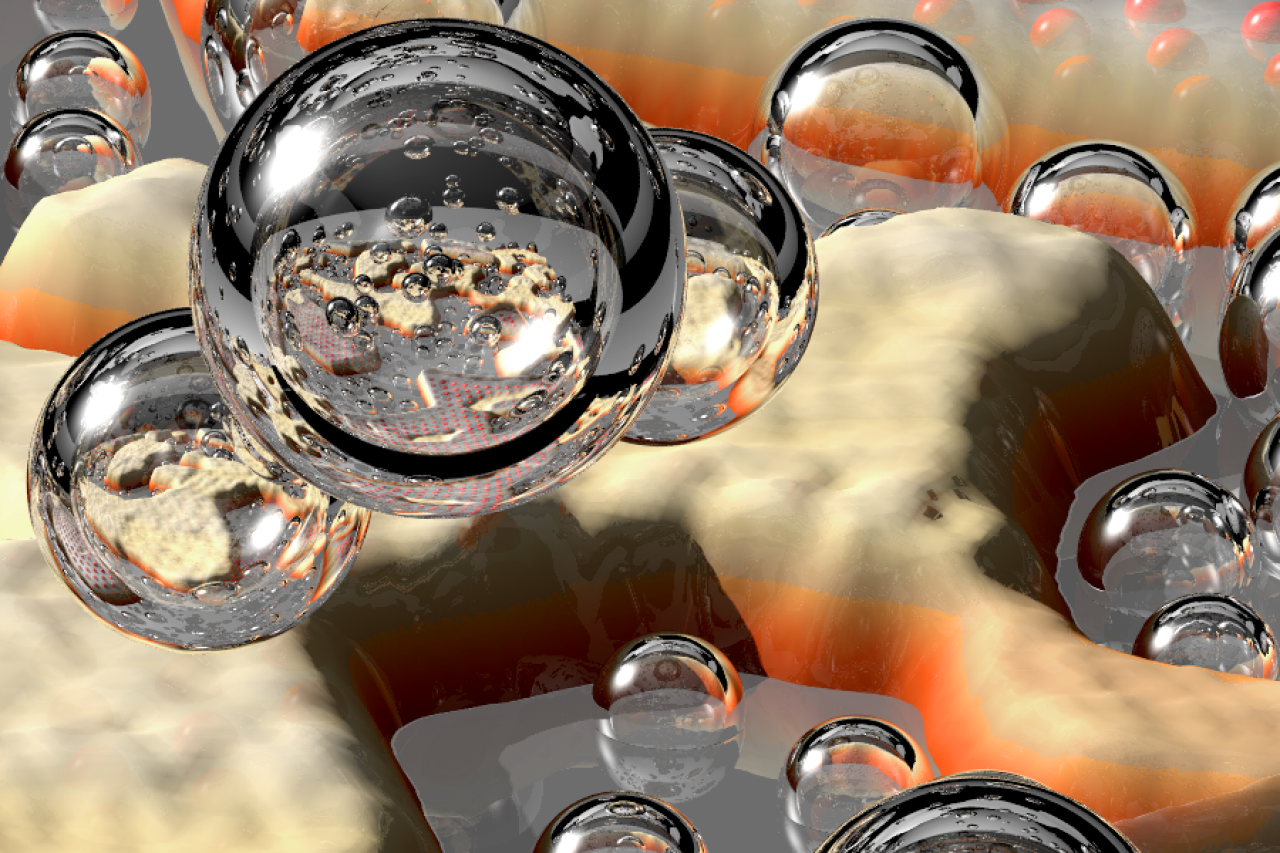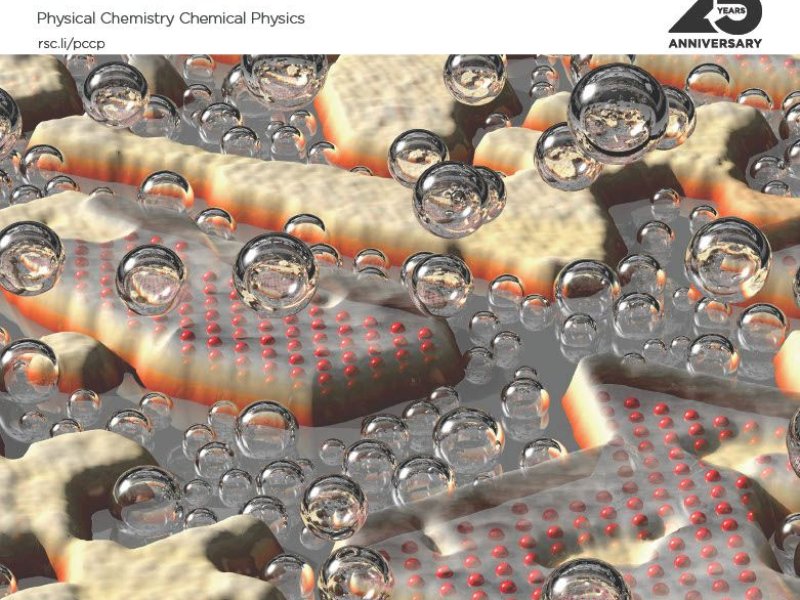Oxide nanoparticles in electrochemical environments

The cover page of the current issue of Physical Chemistry Chemical Physics highlights research by scientists from Charles University and their colleagues from Friedrich-Alexander-Universität Erlangen-Nürnberg dealing with properties of cerium oxide nanoparticles in the alkaline electrolyte.
Oxide nanoparticles are broadly used in the emerging technologies for electrochemical energy conversion and electrochemical synthesis – fuel cells, electrolyzers and electrochemical reactors. Oxide nanoparticles are integrated in the electrodes where they contribute to catalyzing the electrochemical reactions. Electrochemical reactions are expected, generally, to efficiently replace traditional thermally activated chemical reactions in the future economy based on renewable electricity.
Electrochemical activity of the electrodes with integrated oxide nanoparticles is determined by the structure and the chemical state of the nanoparticles. However, investigation of these properties under electrochemical operation conditions turns out to be very challenging. Scientists from the Department of Surface and Plasma Science, in cooperation with their German colleagues, investigate the nanoparticle properties using a unique combination of surface science and electroanalytical experimental methods. Their innovative approach now allows for the first time to determine the stability, chemical state, and oxidation/reduction properties of cerium oxide nanoparticles in alkaline electrolyte. They have identified a size effect, when nanoparticles larger than 5 nanometers retain their cerium oxide character, while smaller nanoparticles convert to so called oxyhydroxide. Cerium oxide represents one of the industrially most widespread catalytically active material. The here published results will support the development of advanced cerium oxide-based electrocatalysts.
A model
study of ceria–Pt electrocatalysts: stability, redox properties and hydrogen
intercalation
Lukáš Fusek, Pankaj Kumar Samal, Jiří Keresteš, Ivan
Khalakhan, Viktor Johánek, Yaroslava Lykhach, Jörg Libuda, Olaf Brummel, Josef
Mysliveček, Physical Chemistry Chemical Physics, 2024.




